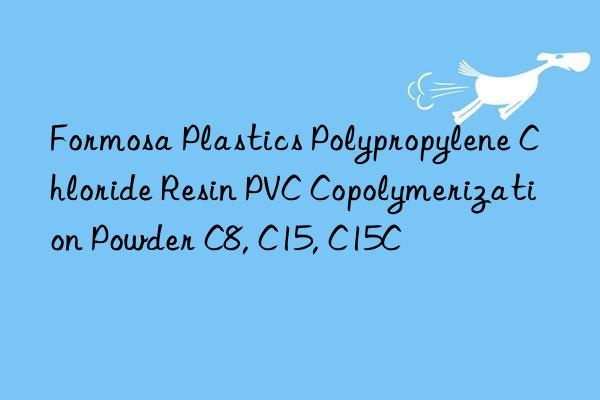
Product composition
Polyvinyl chloride resin (PVC), English name Polyvinyl Chloride, is a polymer formed by free radical polymerization of vinyl chloride monomer, with a chlorine content of about 57wt %.
PVC is one of the earliest resins to achieve industrialization. Due to the mature processing technology and low price of PVC, its usage in building materials and people's livelihood applications is increasing. The amount is increasing rapidly, and it is one of the five general-purpose resins.
Product Features
1. The molecules of PVC are entangled and contain polar groups of chlorine atoms, which increases the force between molecules. This structure makes PVC processed products rigid and hard. , Mechanical improvement, and endow excellent flame retardant performance.
2. There are chlorine atoms and hydrogen atoms between two adjacent carbon atoms on the main chain of PVC resin, which makes PVC prone to degradation reactions under the action of light and heat Hydrogen chloride (HCL) gas is formed.
3. The performance of PVC:
(1) General performance:
PVC is a white powder with a relative density of 1.35-1.45 (g/cc). The hardness of the processed product can be determined by the amount of plasticizer added during processing. , and made into products with great differences in softness and hardness.
(2) Mechanical properties:
The tensile strength of PVC increases with the increase of the degree of polymerization, but the amount of plasticizer added to PVC has a great influence on the mechanical properties. In other words, as the content of plasticizer increases, the mechanical properties decrease, but the elongation at break increases.
(3) Thermal properties:
The glass transition point temperature of PVC is 80-86°C. PVC resin begins to decompose at 140°C, producing HCL, which rapidly accelerates to 180°C. Generally, the melting temperature of PVC is 160°C.
(4) Electrical properties:
PVC is a kind of excellent electrical insulation, and the volume impedance value is higher than 10^14, but the volume impedance is easily affected by the types of processing additives and the additives.
(5) Chemical resistance
PVC is resistant to most inorganic acids (except oleum and concentrated nitric acid), alkalis, most organic solvents (ethanol, gasoline and mineral oil) and inorganic salts, suitable for For chemical resistant materials. However, PVC is easy to swell or dissolve in esters, ketones, aromatic hydrocarbons and halogenated hydrocarbons, and the best solvents are tetrahydrofuran and nitrobenzene.
Product Benefits
The quality of PVC is stable, the supply of PVC is stable, and it complies with international environmental regulations.
Product Category
| Model | Features | purpose |
| C-8 | Copolymer of vinyl chloride and vinyl acetate, overlap degree 800, vinyl acetate content 8.0 %, with low melt viscosity, higher viscosity after dissolved in solvent | Suitable for credit cards, hardboard, floor tiles, inks and finishes |
| C-15 | Co-lamination powder of vinyl chloride and vinyl acetate, overlap degree 450, vinyl acetate content 12.5 %, with a very low melt viscosity. The solvent dissolves quickly and the solution viscosity is low | suitable for protective coatings, floor tiles, inks and surface treatments |
| C-15C | Co-vinyl chloride and vinyl acetateIt is a compound with a coincidence degree of 780, a vinyl acetate content of 12.5%, and a low melt viscosity | Suitable for credit cards, floor tiles, inks and finishes |
| C-15(C) | Vinyl chloride and vinyl acetate co-polymer powder, with low melt viscosity and good Liquidity | Suitable for hard vinyl records |

 微信扫一扫打赏
微信扫一扫打赏

